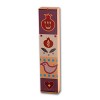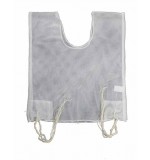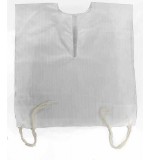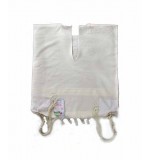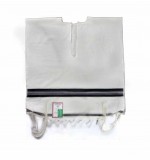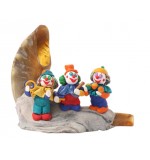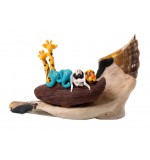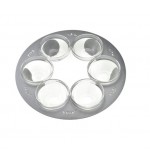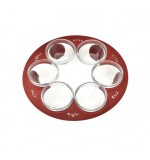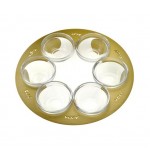Rosh Hashana is the day marking the beginning of the new year. It is one of the most significant days in our calendar.
Primarily, it is considered a day of judgment - being that on this day a person is judged for his actions over the past year, and his fate for the coming year is determined.
Even though this judgment is announced and inscribed by G-d on Rosh Hashana, it is actually only sealed on Yom Kippur (the day of Repentence). During the ten days between Rosh HaShana and Yom Kippur, the ‘Ten Days of Repentance’, a person can try to change the verdict before it is too late.
The festival falls on the first and second day of Tishrei, and the main commandment of the day is hearing the Shofar blasts. The Shofar (a trumpet made out of a ram’s horn) is blown at various intervals throughout the morning prayers. If Rosh Hashana falls on a Saturday, the Shofar is not blown.
Biblical source:
The festival of Rosh Hashana is derived from a verse in the Torah, in the book of Numbers:
“And on the first day of the seventh month it is a holy calling for you; all work you must not do, it is a day of blowing.”
Rosh HaShana: the first day of the new Jewish year. Rosh Hashana is not only the beginning of the year, but also the ‘head’ of the year. Just as the head of the person is the centerpoint of all his strength, containing the brain that sends signals to the entire body; so too ‘Rosh’ HaShana serves as the figurative ‘head’ of the year, whereby a persons life for the upcoming year is determined.
Yom HaDin - Day of Judgment: On this day G-d judges every human being in the Heavenly Court.
Yom HaKeseh - The Day of Renewal: This is the only festival which falls on a day when the moon is in the first stages of renewal. The other festivals such as Passover and Tabernacles, occur when the moon is full or close to this time in the middle of the month. It is written in Tehillim (Psalms) 81:4 “Tiku Bachodesh Shofar, baKeseh l’yom Chagenu” (Blow the Shofar at the moon’s renewal, at the appointed time for our festive day).
Yom HaZikaron – Day of Rememberance: Our Sages explain that blowing the Shofar on Rosh Hashana arouses a person’s memory of his deeds, and brings forth thoughts of repentance and regret.
As it says in the Torah: “On the first of the seventh month it shall be for you a day of rest, the memory of the blowing , a holy calling”. Also when we recite Kiddush over the wine on the two nights of the festival, we say: “And You Hashem our G-d gave us with love this day of remembrance.”
Yom Teruah – the day of Blowing: It is the day we blow the Shofar, a trumpet made out of the horn of a ram. As we see in the verse: “A day of blowing, a holy calling”.
Rosh HaShana – Blessings and Wishes:
On the first night of Rosh HaShana it is a custom to wish each other a good year, along with the prayer that they be inscribed in the book of Life.
For the rest of the festival and after, we simply wish each other a ‘Shana Tova’ (a good year), and ‘Ketiva V’Chatima Tova’ (May you be inscribed and sealed for the good).
The Simanim (Symbolic Foods):
During the meals on Rosh Hashana, after the ritual washing of the hands, we eat the ‘Simanim’ – various foods which symbolize our hope for all good things in the coming year.
The idea is to make requests which are connected to the name of particular food. Every request begins with the words: “Yehi Ratzon Milfanecha Hashem Elokenu V’Elokei Avosenu She-” (May it be Your will, HaShem our G-d and the G-d of our forefathers that…), and then continue with the appropriate request. Below is a list of the ‘requests’, as they appear in the Talmud.
The foods which we eat as Simanim, symbolic foods, are based on the Hebrew word for the food item and therefore reciting the request in a different language loses its meaning. So it is worthwhile being equipped with the Hebrew terminology when partaking of the Simanim.
Apple dipped in honey – “Yehi Ratzon… Shetechadesh Aleinu Shana Tova u’Metuka” (May it be Your will… that You renew for us a good and sweet year).
Date – ‘Tamar’: “Yehi Ratzon… SheYitamu Oyveinu VeSoneinu V’chol Mevakshei Re’osonu” (May it be Your will… that our enemies, foes and those who seek evil are consumed).
Fenugreek – ‘Ruvia’: “Yehi Ratzon… SheYirbu Zechuyoseinu” (May it be Your will… that our merits increase). Fenugreek is a type of black-eyed pea or bean. In Hebrew it is often called ‘Harbeh’, and in this blessing we ask for ‘harbeh zechuyot’ – many merits.
Beets – ‘Silka’ or ‘Selek’: “Yehi Ratzon… SheYistalku Soneinu v’Oyveinu” (May it be Your will… that our adversaries be removed).
Carrot – ‘Gezer’: “Yehi Ratzon… SheTigzor Aleinu Gezerot Tovot” (May it be Your will… that You decree for us good verdicts). The word gezer (carrot) and gezar (decree) in Hebrew have the same letters.
Pomegranate – ‘Rimon’: “Yehi Ratzon… SheNiheyeh M’leyim Mitzvot K’rimon” (May it be Your will… that we will be full of good deeds like a pomegranate). The number of seeds inside a pomegranate is 613, exactly the amount of commandments that were given to us in the Torah. We are asking that we be filled with these good deeds and merits, like a pomegranate..
Head of a fish or sheep – ‘Rosh Shel Dag/Ayil’: “Yehi Ratzon… SheNiheyeh l’Rosh velo L’Zanav” (May it be Your will… that we be as the head and not as the tail). Those who use the head of a fish, often recite another request: “Yehi Ratzon… Shenifreh V’Nirbeh K’dagim” (May it be Your will… that we be fruitful and multiply like fish).
